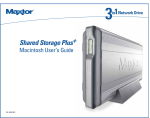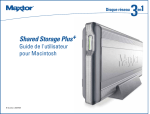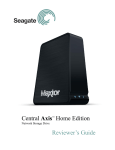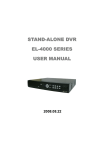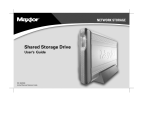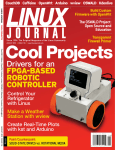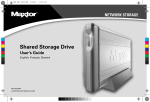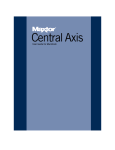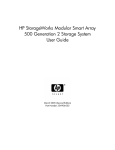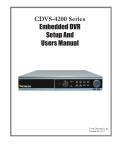Download Maxtor Shared Storage Plus User`s Guide, US - web edition
Transcript
Contents 1 Introduction . . . . . . . . . . . . . . . . . . . . . . . . . . . . . . . . . . . . . . . . . . . . . . . . . . . . . . . . . 1 Shared Storage Plus Features . . . . . . . . . . . . . . . . . . . . . . . . . . . . . . . . . . . . . . . . . . . . . 1 Shared Storage Plus Components . . . . . . . . . . . . . . . . . . . . . . . . . . . . . . . . . . . . . . . . . . 1 Included in this Kit . . . . . . . . . . . . . . . . . . . . . . . . . . . . . . . . . . . . . . . . . . . . . . . . . . . . . . 1 Minimum System Requirements . . . . . . . . . . . . . . . . . . . . . . . . . . . . . . . . . . . . . . . . . . . 2 Handling Precautions . . . . . . . . . . . . . . . . . . . . . . . . . . . . . . . . . . . . . . . . . . . . . . . . . . . . 2 About this Guide. . . . . . . . . . . . . . . . . . . . . . . . . . . . . . . . . . . . . . . . . . . . . . . . . . . . . . . . 2 Where to Go for Help . . . . . . . . . . . . . . . . . . . . . . . . . . . . . . . . . . . . . . . . . . . . . . . . . . . . 2 2 Installing the Shared Storage. . . . . . . . . . . . . . . . . . . . . . . . . . . . . . . . . . . . . . . 3 Connect your drive . . . . . . . . . . . . . . . . . . . . . . . . . . . . . . . . . . . . . . . . . . . . . . . . . . . . . . 3 Power up your drive . . . . . . . . . . . . . . . . . . . . . . . . . . . . . . . . . . . . . . . . . . . . . . . . . . . . . 3 Set up your drive . . . . . . . . . . . . . . . . . . . . . . . . . . . . . . . . . . . . . . . . . . . . . . . . . . . . . . . 4 3 Using the Shared Storage .......................................... 9 Using the Drive - Windows. . . . . . . . . . . . . . . . . . . . . . . . . . . . . . . . . . . . . . . . . . . . . . . . 9 The Web UI . . . . . . . . . . . . . . . . . . . . . . . . . . . . . . . . . . . . . . . . . . . . . . . . . . . . . . . . . . 32 Using External USB drives with your drive. . . . . . . . . . . . . . . . . . . . . . . . . . . . . . . . . . . 64 Using USB printers with your drive . . . . . . . . . . . . . . . . . . . . . . . . . . . . . . . . . . . . . . . . 65 Shutting down your drive . . . . . . . . . . . . . . . . . . . . . . . . . . . . . . . . . . . . . . . . . . . . . . . . 65 Resetting your drive . . . . . . . . . . . . . . . . . . . . . . . . . . . . . . . . . . . . . . . . . . . . . . . . . . . . 65 Media Serving. . . . . . . . . . . . . . . . . . . . . . . . . . . . . . . . . . . . . . . . . . . . . . . . . . . . . . . . . 66 Index . . . . . . . . . . . . . . . . . . . . . . . . . . . . . . . . . . . . . . . . . . . . . . . . . . . . . . . . . . . . . . . 67 1 Introduction Thank you for selecting the Maxtor Shared Storage Plus drive. Attaching this storage solution to your network in a home or small office is a simple and economical way for users to share files. Your new Maxtor Shared Storage Plus drive offers a winning combination of capacity, simplicity of use and helpful software features that automate configuration, privacy and more. The simple plug-and-play installation allows you to start using your drive as quickly as possible. You can also change settings on your drive at any time, and manage user access through a standard web browser. Shared Storage Plus Features Instantly add storage to your network, back up files across every compatible PC on your network, and stream music, videos and photos from your drive to your home entertainment system. Shared Storage Drive Components Review the features shown before you begin installation. Front Power Button Back Power Reset USB Ports Connector Button Network ID Panel Security Ethernet port Locking Slot Status Light (Flashing Green and Amber Lights) Figure 1. Shared Storage Plus Drive Features Simple installation and setup • Automatically configure the drive to your network Included in this Kit • Manage the drive using our simple wizard-based user interface • Connect and share printers and additional hard drives using the drive’s 2 USB ports The Shared Storage Plus drive comes complete with the components shown in Figure 2. Instant shared storage • Easily store and share access to files, photos, music and videos • Organize files automatically using our exclusive Drag and Sort™ feature • Give users full access to public folders, while keeping others private Shared Storage Plus Drive Quick Start CD Quick Start Guide Vertical Stand Cat5 Ethernet Cable Back up what matters most • Protect data on all of your networked PCs using our exclusive Maxtor® Backup • Get backup and storage status for all users with our SimpleView™ dashboard Playback of videos, music and photos Power Adapter Figure 2. Included in this Kit • Use our exclusive media streaming feature to play digital photos, music and video on a networked home entertainment system • Connect automatically through a UPnP™ AV compatible digital media adapter • Stream media (photos, music and videos) without turning on your computer Introduction 1 Minimum System Requirements Where to Go for Help The following are the minimum system requirements. Maxtor provides a comprehensive support section on its website, including the latest software, user guides and a knowledge base for its customers. • Windows 2000, Windows XP • Wired or wireless router with an available 10/100 Ethernet RJ-45 port • Internet Explorer 6.0 or higher for management interface of Shared Storage • Internet access for updates • Networked Media Adapter Note: Special considerations for immediate media file access are required. See Media Serving for more information. Handling Precautions Handle your drive with care! Follow the precautions listed here or you could damage your drive and void your warranty. Review the Maxtor Limited Warranty, included in the Maxtor Shared Storage Plus Quick Start Guide, for more information. The following precautions can prevent loss of data: • Do not bump, jar, drop or move the drive while in operation. • Do not stack drives. • Do not set the drive on its side without using the vertical stand as it could fall over and cause damage. • Do not remove any cables or power cords without powering down the drive, using the front panel button. • Do not set any liquids or drinks on the drive. Liquids will damage the internal electronics. • Do not attempt to open the drive’s case. This will void your warranty. About this Guide The following symbols and conventions are used in this guide: Bold Used for menu, command, and keyboard selections you make and screens you will see. Helpful information about a particular topic. Important information to prevent problems and ensure that you are successful in using the drive. 2 Maxtor support website http://support.maxtor.com/sharedstorage Maxtor has provided Shared Storage – Troubleshooting and FAQ Portal from within its Knowledge Base providing you with one link from which you can obtain answers to common questions and problems. Support phone numbers Check the Contact Us section on the Maxtor support website, for phone numbers in your region. 2 Installing the Shared Storage Step 1 - Connect your drive Step 2 - Power up your drive Connecting the Ethernet cable Press the button on the front of your Maxtor Shared Storage Plus drive. 1. Plug one end of the Ethernet cable into your network, router or switch. Your drive will now start. The start up process can take up to one minute to complete. 2. Plug the other end of the Ethernet cable into the Ethernet port on your Shared Storage Plus drive. • The light inside of the button will turn yellow. • When the light pulses green, your drive is ready and you can go to Step 3. Your drive will be accessible on your network approximately 10 seconds after the light turns green. Router/Switch Ethernet Ports Figure 3. Connecting the Ethernet Cable Connecting the power 1. Plug the round female connector from the power adapter into the drive’s power connector. Power Button Figure 5. Pressing the Power Button 2. Plug the female connector on the power cord into the power adapter. Figure 4. Connecting the Power 3. Plug the standard electrical plug from the power adapter into your power source. Installing the Shared Storage 3 Step 3 - Set up your drive 4. The InstallShield Wizard screen will appear… Note: Maxtor Quick Start software must be installed on each Windows 2000/XP system in order for each user to take advantage of a Personal folder. 1. Insert the Maxtor Quick Start CD. 2. The Choose Setup Language screen will appear. If this screen does not appear, you can access it manually by double-clicking the Quick Start CD icon displayed in My Computer or Windows Explorer and doubleclick on Setup.exe. …followed by the Welcome screen. 3. Select your language and click OK. 4 5. Click Next. The License Agreement screen will appear. 6. Click Yes. The Choose Destination Location screen will appear. If you wish to change the location of the installation, you may do so by clicking the Browse button and selecting a new location. 7. Click Next. The Setup Status screen will appear as the software is installed, followed by the InstallShield Wizard Complete screen when the installation is complete. 8. Click Finish to restart your system. Installing the Shared Storage 5 9. Once the system is rebooted, double-click on the Maxtor Quick Start icon located on your Desktop. 10. The Quick Start software will open and the Maxtor screen will appear, with the message: “Locating Shared Storage Drive s on the Network.” 11. When your Shared Storage Plus drive is found, you will see its Network ID number and IP address appear in a drop-down menu in the middle of the screen. For example: MSS-000310 (169.254.60.49) 6 Note: The Shared Storage Plus drive is configured to acquire an address assigned by a DHCP router or server. If your network does not contain a DHCP router or server, your Shared Storage Drive will assign itself an Automatic Private IP (APIPA) address within the IP Range of 169.254.x.x with a Subnet Max of 255.255.0.0. Please reference the Shared Storage – Troubleshooting and FAQ Portal found in Maxtor’s Knowledge Base for more information regarding locating your Shared Storage Drive. If you have multiple Shared Storage Drives connected to your network, each will appear in the drop-down menu. 12. Click Next. The next screen will show the Network ID of your drive. The screen will tell you that there is “…no security password” setup for the administrator. Click Manage to set an Administrative Password. This will launch the Shared Storage Drive’s Web-Based UI (User Interface). New Private Account - all of your files are password-protected except for those that you place in your “public” folder to share with others. Note: See “The Web UI” on page 32 for Using the Maxtor Shared Storage Plus Web UI. Run Set-up Wizard for more information on setting the Administrative Password. Existing User – If you already have an user account, you may choose this option to access your folder on the Shared Storage Drive. Click Next to Set up Shared Storage on this computer. The Main Menu will appear. Make your selection and click Next. Note: On-line help is available on most screens of the UI. To get help on a topic, click on the hyperlink located on the screen (see example below). 13. Click on the Shared Storage Setup icon. The Shared Storage Setup window appears. A Help Window displays providing you with more details Choose an Account type. New Public Account - all of your files are accessible to anyone who has an account on your Shared Storage Drive. Installing the Shared Storage 7 14. Enter a Name for the new account (Password and Password confirmation if prompted) and click Next. 16. The Quick Start software will now create your new user account and the appropriate folders for the account. The Set Up Completed screen will appear… 15. Select your account type (Home or Business use), and click Finish. …and a shortcut to your Shared Storage Drive will appear on your Windows Desktop. 8 3 Using the Shared Storage Using the Drive - Windows You can use your Maxtor Shared Storage Plus Drive as you do any hard drive that is either built-in or directly connected to your computer. To Locate a Shared Storage Drive: 1. Access the Maxtor Quick Start software. Maxtor Quick Start Software The Maxtor Quick Start software is an intuitive tool that allows you to: • Locate/discover Shared Storage drives on your network • Setup New User Accounts • Backup and Restore Files from your computer • Perform various tasks through its Drive Management options To access this application, double - click on the Maxtor Quick Start shortcut icon located on your PC’s desktop. 2. Click on the Locate button. The Quick Start software will open and the Maxtor screen will appear, with the message: “Locating Shared Storage Drive on the Network.” Note: To access the Maxtor Quick Start software when the shortcut icon has been removed/deleted, click Start ➔ Program (all program for Windows XP) ➔ Maxtor Quick Start. Using the Shared Storage 9 When your Shared Storage Drive is found, you will see its Network ID number and IP address appear in a drop-down menu in the middle of the screen. For example: MSS-000310 (169.254.60.49) Choose an account type: • New Public User Account - all of your files are accessible to anyone who has an account on your Shared Storage Drive. • New Private User Account - all of your files are password-protected except for those that you place in your “public” folder to share with others. • Existing User Account – If you already have an user account, you may choose this option to access your folder on the Shared Storage Drive Creating a New Public User Account: 1. From the Maxtor Quick Start Main Menu, click on Shared Storage Setup. 2. Under New User, click on Public radio button and click Next. Note: If you have multiple Shared Storage Drives connected to your network, each will appear in the drop-down menu. Click Next to proceed. Shared Storage Setup This option will help you in creating a New user account or select an existing account to be configured to you PC. 1. Click on the Shared Storage Setup icon. The Shared Storage Setup window appears. 10 3. Type the name of the User and click Next. 4. Choose your account type (Home or Business use) and click Next. 5. At this point the following screen appears. This process may take awhile. 6. Once the User has been created, you will see: 7. When created, a shortcut icon will appear on the system’s desktop for the user. 8. Click the Open button to use the user’s folder right away or click Main Menu to return to the Quick Start’s main window. Using the Shared Storage 11 Creating a New Private User Account: 4. Choose the account type (Home or Business use) and click Finish. 1. From the Maxtor Quick Start Main Menu, click on Shared Storage Setup. 2. Under New User, click on the Private radio button and click Next. 5. At this point the following screen appears. This process may take awhile. 3. Type the name of the User, the User’s Password, confirm the Password and click Next. 12 6. Once the User has been created, you will see: 7. When created, a shortcut icon will appear on the system’s desktop for the user. 3. Click on the Name Drop-Down Menu and select the existing user from the list displayed. 4. If needed, type the existing user’s password and click Open. 8. Click the Open button to use the user’s folder right away or click Main Menu to return to the Quick Start’s main window. Configuring an Existing User: 1. From the Maxtor Quick Start Main Menu, click on Shared Storage Setup. 2. Click on the Use an existing account radio button and click Next. Using the Shared Storage 13 5. At this point the following screen appears. This process may take awhile. Differentiating between Home and Business Folders: You can choose a set of folders appropriate for Home or Business use. The folders created are listed below. Table 1: 6. Once the User has been created, you will see the user’s folder display on your Desktop, and a shortcut to the user’s folder will appear on your Windows Desktop. 14 Home Folders Appropriate for My Backup Public Backed-up files My Documents Word processing files My Library Electronic books My Movies Home videos My Music Digital music collection My Photos Digital photos and artwork My Sites Web pages My Software Software storage Public Sharing files with others Business Folders Appropriate for My Backup Public Backed-up files My Documents Word processing files My Multimedia Audio and video files My Photos Digital photos and artwork My Presentations Presentation files My Projects Project files My Spreadsheets Spreadsheet files My Sites Web pages My Software Software storage Public Sharing files with others Using the Backup & Restore Feature: Set Backup: With the Maxtor Quick Start software open, click BACKUP & RESTORE This option is used to: • Select the local files/folders to be backed up to the Shared Storage Drive • Schedule when files/folders will be backed up to the Shared Storage Drive • Turn On or Off the Scheduled Backup • Edit Existing Backup Settings To set a backup: 1. Launch the Maxtor Quick Start program and click on BACKUP & RESTORE. 2. Click on Set Backup. You will see the following: Step 1 of 2 - You will see the following From this screen, you can: • Set a backup so that local files from your PC will backup to the Shared Storage Drive • Restore files from the Shared Storage Drive to your PC • Check the status of your last backup using SimpleViewTM • Perform file maintenance tasks that delete historical file versions from the Shared Storage Drive and/or synchronize your backup with your PC • Launch an immediate backup of your selected files/folders from your PC to the Shared Storage Drive Note: File and Folder names will vary from system to system Using the Shared Storage 15 3. Check the boxes associated with the files and or folders you wish to back up and click Next. The Backup Schedule window displays and confirms where the selected files/folders will be backed up, and that these files/folders will be backed up Daily at 10:00 PM. Step 2 of 2 - You will see the following 4. By default your selected files and/or folders will be backed up Daily at 10:00 pm. Click Finish to continue. Other Settings: To disable (Turn Off) Scheduled Backups: 5. Click on the Off radio button to turn off scheduled backups 16 To re-enable (Turn On) Scheduled Backups: 6. Click on the On radio button to return to scheduled backups. Advanced – Optional backup settings – This feature allows you to set the number of Historical File versions you wish to save to the Shared Storage Drive and adjust Folder Tagging. To adjust these settings, click on the Advanced button. Historic Versions Drop-Down field and select the number of backup versions you wish to save. Click on the number that you wish… …and this number will display in the Historic Versions field. Historic File Versions: When you back up your files, you have the option to store previous, or “historic,” versions of each file. You can then restore any historical version based on the date when it was backed up. 7. You can set your backup to store from 1 to 10 historic versions (the default is 5). To adjust the number of Historical File Versions, click on the When the number of historical versions reaches the number that you have selected, the oldest version is deleted and replaced with the newest version with each new backup. Folder Tags – By default, this feature adds a special icon to each folder on your computer that is set to be backed up to the Shared Storage Drive. Using the Shared Storage 17 Example of a Folder Tag denoted by the Blue Circle with a check. 10. When all Advanced Settings have been configured, click Save. To Disable Folder Tags: 8. From the Advanced Setting Window, click on the Off radio button to shut down the Folder Tags feature. 11. Click OK to confirm and save all settings… To Re-enable Folder Tags (when it has been shut off): 9. From the Advanced Setting Window, click on the On radio button to restart the Folder Tags feature. 18 To Edit a Backup Schedule: This option allows you to adjust the settings of a current Backup Schedule. To edit a backup schedule: The Backup Schedule window displays and confirms where the selected files/folders will be backed up, what days they will be backed up and what time the backup will automatically run. Launch the Maxtor quick start software and click on BACKUP & RESTORE. Make any changes to Advanced Settings and click Save. Click on Set Backup. Click OK to save these new changes. Select and/or deselect the files/folders that you wish to back up (see Steps 1 of 2 and 2 of 2 above) Restore Files: Click on the checkboxes to deselect the days that you do not wish the backup to run; change the time that you wish the backup to run and click Finish. Launch the Maxtor Quick Start program and click on BACKUP & RESTORE. To restore files from the Shared Storage Drive to your PC: Click on Restore Files. From the Restore Files window, you have two options: • Restore a Previous File Version (default option) - Choosing this option allows you to restore an individual historical version of a file, based on the date it was backed up. The number of historical versions available is based on the number selected in the Advanced backup settings. By default, 5 historical versions of each file are stored. • Restore Most Recent Files and Folders - Choosing this option will open the “My Backup” folder in your personal folder, on the Shared Storage Drive, and allow you to restore multiple files and folders by clicking and dragging them to wherever you want to put them. Using the Shared Storage 19 To Restore a Previous File Version: Note: “YourUserName” is your account Name. Click on the Restore a previous file version radio button and click Next. Click Restore. If prompted to replace the file, click Replace. The Restore Files window appears. All backed up files/folders will appear in the left, Select a File column. This process may take awhile to populate. The Historic Version of the file is then copied to your computer from the Shared Storage Drive. Once populated, use the Scroll Bar to select a Version of the file and where you want to restore the file to: • Original (default) - Restores file to its original folder on your computer • Temporary - Restores file to the following folder: C:\MyDocuments\YourUserName\Maxtor_Restore 20 To Restore Most Recent Files and Folders: SimpleViewTM Storage and Backup Status: Click on the Restore most recent files and folders radio button and click Next. To check the status of your last backup: Launch the Maxtor Quick Start program and click on BACKUP & RESTORE. Click on SimpleViewTM Storage & Backup Status. This will launch a window showing the root directory structure of the My Backup folder for the user connected to the Shared Storage Drive. The SimpleViewTM Storage & Backup Status window appears and acquires the necessary information. To restore files, simply drag and drop (cut/copy and paste) files/folder from the Shared Storage Drive to your computer. Using the Shared Storage 21 This SimpleViewTM screen provides you with an overview of each user: Table 2: Space Used Total size of all user's files Last Backup Date of user's last backup Backup Status Success of user's last backup Backup Log File You can see the details of a backup by reading the log file. To view the log file, click the colored status indicator in the Backup Status column. Depending on your operating system, you will be prompted with Open File window…if so, click on the Open button. This will launch your system’s text editor (e.g., Notepad) and show you information regarding the backup in question. Below is an excerpt from a log file: ******************************************* Tuesday, July 05, 2005, at 08:16 \\MSS-000310\Maxtor\My Backup Destination is not accessible \\MSS-000310\Maxtor\My Backup Destination is not accessible \\MSS-000310\Maxtor\My Backup Destination is not accessible This information is displayed via backup status indicators (icons) in the Backup Status column. File Maintenance: Backup Status Indicators Definitions: Launch the Maxtor Quick Start program and click on BACKUP & RESTORE. Click on File Maintenance. Table 3: Color 22 Status Meaning Complete All files successfully backed up Incomplete Some files backed up Failed No files backed up The File Maintenance window appears. From this window, you can: You will be prompted with the following: Delete Historical Versions – This will remove all but the most recent version of each backed up file – thus freeing up space on the Shared Storage Drive. Sync Backup to Computer - This removes backed-up files in your “My Backup” folder on the Shared Storage Drive if the files have been deleted from your computer. Click Yes to proceed. Warning: This is a data destructive process. All historic versions of files except for the most recent version will be deleted from your Shared Storage Drive! Click OK to continue. To delete historical file versions: Click on the Delete button. You will be returned to the File Maintenance window. Using the Shared Storage 23 To Sync Backup to Computer: Click on the Sync button. Warning: This is a data destructive process. All historic versions of files except for the most recent version will be deleted from your Shared Storage Drive! You will be prompted with the following: You will be returned to the File Maintenance window. Drive Management: This feature will do the following: • Configure Drag and Sort settings • Access the Shared Storage Drive’s Web UI (User Interface) via Advanced Settings • Review the Storage and Backup Status on your Shared Storage Drive Click Yes to proceed. 24 Drag and Sort Settings: Click on the Off radio button and click Save. The Drag and Sort feature automatically sorts files into a set of folders inside you personal folder or the public folder. Every time you drag files to your Shared Storage Drive, each file is sorted into the appropriate folder based on its file type. At this point, the Drag and Sort feature is turned off and you are returned to the Drive Management window. To enable Drag and Sort settings: Launch the Maxtor Quick Start software and click on DRIVE MANAGEMENT. Click on Drag and Sort. Click on the On radio button and click Save. By default, the Drag and sort feature is turned On and files will sort into the My personal folders. To disable Drag and Sort settings: Launch the Maxtor Quick Start software and click on DRIVE MANAGEMENT. Click on Drag and Sort. At this point, the Drag and Sort feature is turned on and you are returned to the Drive Management window. Using the Shared Storage 25 To sort files into Our Public Folder: Launch the Maxtor Quick Start software and click on DRIVE MANAGEMENT. Click on Drag and Sort. Click on the Sort files into “Our” public folder radio button and click Save. The Sorted File Types list can be configured to meet your needs. Refer to the Troubleshooting Tips and FAQs found at the end of this Guide for details. Advanced Settings: This option launches the Shared Storage Drive Web UI. This interface allows you to perform various tasks ranging from user and share management, configuring USB devices and network options, setting power management and running diagnostics, etc. To access the Web UI: Launch the Maxtor Quick Start software and click on DRIVE MANAGEMENT. Click on Advanced Settings. At this point, the Drag and Sort feature is configured to copy files to “Our” public folder and you are returned to the Drive Management window. Sorted File Types: A complete list of default, sorted file types can be found via the Help Menu. Click on the “Which file types work and how are they sorted?” link for more information. 26 At this point, your Web Browser launches. Type in your Administrative username and password for authentication and click OK. The Shared Storage Drive - Home Page Launches The SimpleViewTM Storage & Backup Status window appears and acquires the necessary information. This SimpleViewTM screen provides you with an overview of each user: Table 4: Note: See Using Your Shared Storage Drive – The Web User Interface for more information Space Used Total size of all user's files SimpleViewTM Storage & Backup Status: Last Backup Date of user's last backup Backup Status Success of user's last backup Launch the Maxtor Quick Start software and click on DRIVE MANAGEMENT. Click on SimpleView TM Storage & Backup Status. Using the Shared Storage 27 This information is displayed via backup status indicators (icons) in the Backup Status column. Backup Status Indicators Definitions: Color Status Meaning Complete All files successfully backed up Incomplete Some files backed up Failed No files backed up Backup Log File You can see the details of a backup by reading the log file. To view the log file, click the colored status indicator in the Backup Status column. Pending on your Operating System, you will be prompted with Open File window…if so, click on the Open button. Manage Digital Photos, Music, and Video: Note: This feature is only functional if you have UPnP Audio/Video device connected to your network through the Router used by the Shared Storage Drive. Launch the Maxtor Quick Start software and click on DRIVE MANAGEMENT. Click on Manage Digital Photos, Music and Video. This will launch the Web UI and take you to the following page. Click Next. This will launch your system’s text editor (e.g., Notepad) and show you information regarding the backup in question. Below is an excerpt from a Log File: ******************************************* Tuesday, July 05, 2005, at 08:16 \\MSS-000310\Maxtor\My Backup Destination is not accessible \\MSS-000310\Maxtor\My Backup Destination is not accessible \\MSS-000310\Maxtor\My Backup Destination is not accessible 28 Select the shared folders that will be searched for music, videos and/or pictures and click Next. Windows System Tray Access You can access the Maxtor Quick Start Setting through the Windows System Tray. When installed, the Quick Start Software creates an icon in the computer’s System Tray that shows the connectivity and the backup status of your user files to the Shared Storage Drive. Example of System Tray Icon The following Table defines the meanings of the System Tray Icons: Color Status Meaning Complete All files successfully backed up Incomplete Some files backed up Failed No files backed up Not Connected Shared Storage is not connected/recognized by the computer Note: You can only check one (1) iTunes folder at any given time Click Done to return back to the Shared Folders Management Page. Click on the System Tray Icon to access its menu. Note: See Manage Digital Photos, Music, and Video on pg xx for more information on Media Server Using the Shared Storage 29 Feature available are: • • • • • • • Shared Storage Name and User Share Path Shared Storage Setup Backup & Restore Drive Management Backup Now Storage & Backup Status (soon to be called SimpleView) Exit Backup & Restore allows you to Set Backups, Restore Files, check Storage and Backup Status and perform File Maintenance. All feature found in the Quick Start software can readily accessed through this System Tray Icon. The Top Option shows the name of the Shared Storage Drive and the UNC (Universal Naming Convention) path for the User. In the example below, you see that the Shared Storage Name is MSS-000842 and that the Maxtor user’s share is accessible from this computer. Shared Storage Setup – allows you to create Users, set Public or Private Folder status and set Administrative Password. 30 Drive Management allows you to configure Drag and Sort Settings, access the Web UI and check Storage and Backup Status. Backup Now, when selected will launch an immediate backup of the computer’s selected files/folders and copy them to the Shared Storage Drive. SimpleViewTM allows you to review the Storage and Backup Status on your Shared Storage Drive. To Launch the Quick Start’s System Tray status (if it has been shut off): Click Start ➔ Programs (all programs for Windows XP) ➔ Maxtor ➔ Maxtor Quick Start – Status. The System Tray icon will return to the System Tray. Note: If the Shared Storage Drive is not connected or recognized (as identified by a grey icon with a “?”), the top field will show that the drive is disconnected; neither Backup & Restore, Backup Now, SimpleViewTM Status features will be accessible for use. Exit allows you to close the Quick Start program in the system Tray. When you click on Exit, you will be asked you’re sure that you want to exit Maxtor Quick Start. Click Yes to close the program. At this point, the icon will be removed from the Windows System Tray. Using the Shared Storage 31 The Web UI its IP Address if the Shared Storage Drive’s address is 169.254.26.69, you would type: http://169.254.26.69 The Web User Interface (Web UI) is used for the following actions: • Setup the Shared Storage Drive (Language, Date/Time Settings, Administrative Password, etc.) • Create/Manage User Accounts • Create/Manage Shared Folders • Advanced Settings - Configure Network Settings, adjust power settings, perform diagnostics, setup USB Devices (external drives, printers) • View Drive Status Accessing the Web UI The Web UI can be accessed via the following methods: 1. Through your Browser Application a. By Network ID – Each Shared Storage Drive has its own Network ID. The Network ID is located on the label located on the back panel of the Shared Storage Drive. Locate the label on the back panel and find the text, MSS Network ID: mss-xxxxxx; “mss-“are the first four characters found at the beginning of each Network ID and the “x” are denoted by numeric characters – for example, 123456); then to access the Web UI: • Launch your computer’s web browser (e.g., Microsoft Internet Explorer, Macintosh Safari, etc.) and type the following in the Address Field: http://mss-xxxxxx/ For example, if the Shared Storage Drive’s Network ID is 123456, you would type: http://mss-123456/ b. By IP Address – Each Shared Storage Drive has its own IP Address, whether it is Static, assign from a DHCP Server or by default via Automatic Private IP Addressing (APIPA). To launch the Web UI via 32 2. Through the Maxtor Quick Start software – You can launch the Web UI from the Quick Start software. To do so: a. Launch the Maxtor Quick Start software. b. Click DRIVE MANAGEMENT ➔ Advanced Settings. c. At this point, your Web Browser launches. Type in your Administrative username and password for authentication and click OK. Run Set-up Wizard: The Run Set-up Wizard will aid in the initial configuration of your Shared Storage Drive. From the Wizard, you can: • Change the language used by the Web UI • Set the Date/Time and adjust it for US or European Format • Name your Shared Storage Drive and assign it to a Workgroup • Create the Administrative Password to secure the administrative functionality of the Shared Storage Drive From the Maxtor Shared Storage Drive – Home Page click on Run Set-up Wizard. The Shared Storage Drive – Home Page opens in your Browser. The Web UI is used to administrate the Shared Storage Drive via a simple, but thorough web interface. In the following pages, you will learn how to use all features of the Web UI. Using the Shared Storage 33 The following page is displayed To set the time: Step 1 of 2 1. Type in the current time using the (hh:mm:ss) format; make sure to indicate AM or PM. Use this page to enter your language preference, today’s date, and the current time. To change the date, and time, later, use the Advanced, Language, Date and Time settings page. To select the Language: 1. Use the pull down menu and select the appropriate language. 2. Click Next. Step 2 of 2 Use this page to assign the Shared Storage Drive a network name, identify the workgroup (Domain) to which it belongs, and to add/change the admin password for your Shared Storage Drive. To set the name of your Shared Storage Drive: 1. Enter the name of your choice in the Name field. To set the Workgroup (Domain) that you would like your Shared Storage Drive to be in: 1. Enter the Workgroup (Domain) name of your choice in the Workgroup field. To set an Administrator password: 1. Select the radio button Yes indicating that you would like to have a password on the Administrator account. 2. Type in the new password and then verify the password by retyping it. 3. Click Next. To set the date: 1. Type in the Date using the (mm/dd/yyyy) format. 34 (Note: If you do not want an Administrator password on your Shared Storage Drive, just select the radio button NO indicating that you do not want to assign an Administrator password and then click Next.) Configuration Complete After completing the Set-up wizard you should see a Congratulations message followed by an overview of all of the settings that were made. Please take a minute to either print or write down the information in your users guide for future reference. To print the summary of your Shared Storage Drive: 1. Click on the print icon below the information. You will be prompted to authenticate using the Administrator’s Name which is admin and type the newly created administrator password. Click OK. 2. When finished printing or writing down the information click OK to return to the Shared Storage Home Page. Using the Shared Storage 35 Accounts Management Creating a New User Account Overview Add a user to your Shared Storage Drive and you want someone to have a particular level of access to information in a share. You can then define the appropriate level of access for that user to that information. Use the Accounts Management link to manage the way people access and store information on your Shared Storage Drive. The Accounts Management page is where you can: • Create a New User Account • Modify Account settings and Sharing Privileges. • Delete User Accounts. When Shared Storage Drive is installed, it includes an Admin user by default. Admin is the user name you or whoever else administers Shared Storage Drive use to log in to exercise administrative privileges. (Note: This is the only account that will allow you to login to the Web administration portion of the Shared Storage Drive) To add a user: Using the Accounts Management Pages • Select what action you would like to do. • If you want to redisplay a page (to change something you entered on it, for example), click Back. 1. Click Create A New User Account. • After making a change click Next. 2. Type the user name in the name field. (Note: The name must have alpha numeric characters and can be a maximum length of thirty two characters.) Go back and forth between pages until you are satisfied that the information is correct. 3. Type a password in the Password field. You must enter a password for the user in order to continue. • To stop and lose your changes, click Cancel. You can stop at any time. 36 4. Click Next. 7. A screen will appear showing that the user was created. 8. Click OK to return to the Accounts Management Page. The user is added and should immediately have access to the Shared Storage Drive. 5. Set the permissions for the user account by selecting the appropriate radio buttons for the folders that you want the user to have access to. (Note: By default the user has permissions to all Shared folders on the Shared Storage Drive.) 6. Click Next. Modify Account Settings and Shared Privileges Use this page to change a password as well as modify what shared folders a user has access to on pre-existing accounts. (Note: The Admin account always has access to every folder on the Shared Storage Drive.) To change folder permissions: 1. Click Modify Account Settings and Shared Privileges. Using the Shared Storage 37 2. Find the user to modify the permissions for and click on Modify. 4. Click Next. 5. A screen will appear notifying you that access privileges have been successfully modified. 6. Click OK to return to the Accounts Management Page. To change the password on a user account: 1. Click Modify Account Settings and Shared Privileges. 3. Set the permissions for the user account by selecting the appropriate radio buttons for the folders that you want the user to have access to. 38 2. Find the user to modify the permissions for and click on Change. 7. Click OK to return to the Accounts Management Page. Delete User Accounts To Delete a User Account: 1. Click Delete User Accounts. 3. Enter the new password for the user. 4. Confirm the password by re-entering it. (Note: If the passwords do NOT match an error message will appear.) 5. Click Next. 6. A screen will appear notifying you that the password has been successfully changed Using the Shared Storage 39 2. Find the user that you would like to remove and click on Delete. 6. Click OK to return to the Accounts Management Page. Note: A User Folder will still remain on the Shared Storage when the User Account has been deleted. Reference Shared Folders Management for the procedure used to delete a shared folder. 3. Confirm that you selected the correct user account to delete. 4. Click Yes. 5. A screen will appear notifying you that the user was successfully deleted 40 Shared Folders Management Overview Create a New Shared Folder To Create a New Public Shared Folder: Use the Shared Folders Management page to manage the way people access and store information on your Shared Storage Drive. If you create a share that has Public access this means that all users will be able to access the folder as well as read and write to the folder. The Shared Folders Management page is where you can: 1. Click Create a New Shared Folder. • Create a New Shared Folder • Modify Shared Folder Access Privileges. • Delete, Suspend or Re-Activate Shared Folders. • Manage Digital Photos, Music and Video for UPnP Audio/Video players connected to you home/office network Using the Shared Folders Management Page 2. Type in the desired name for the new shared folder. (Note: the Name can be no longer than 32 Characters) • Select what action you would like to do. • If you want to redisplay a page (to change something you entered on it, for example), click Back. • After making a change click Next. Go back and forth between pages until you are satisfied that the information is correct. • To stop and lose your changes, click Cancel. You can stop at any time. Using the Shared Storage 41 3. Set the access privileges at: Click New if you want to create another Share on your Shared Storage Drive. • Public shared folder if you would like everyone to have access. To Create a New Defined Access Shared Folder: If you Define the shared folder access you will be able to limit the users that can access the Shared Folder. 1. Click Create a New Shared Folder. 4. Click Next. 5. You will see confirmation that the share was successfully created. Click OK to go back to the Shared Folders Management Page. 42 2. Type in the desired name for the new shared folder. (Note: the Name can be no longer than 32 Characters) • Full Access - This will allow the selected user to Read, Write, and Create new files in the selected Shared Folder 3. Set the access privileges at: • Read Only Access - This will allow the selected user to only read the files in the selected shared folder • Define shared folder access privileges if you would like to limit User access to this share. • No Access - This will allow NO access to the selected shared folder. 6. Click Next. 7. You will see confirmation that the share was successfully created. Click OK to go back to the Shared Folders Management Page. 4. Click Next. Click New if you want to create another Share on your Shared Storage Drive. 5. Set User Access for the share by selecting the appropriate radio buttons for the users that you want to have access to the folder. Using the Shared Storage 43 Modify Shared Folder Access Privileges To change folder permissions: 1. Click Modify Shared Folder Access Privileges. 44 2. Find the Share to modify the permissions for and click Modify. 3. Set the permissions for the share by selecting the appropriate radio buttons for the users that you want to have access to the folder. • Full Access - This will allow the selected user to Read, Write, and Create new files in the selected Shared Folder Delete, Suspend or Re-Activate Shared Folders To Delete a Shared Folder: 1. Click Delete, Suspend or Re-Activate Shared Folders. • Read Only Access - This will allow the selected user to only read the files in the selected shared folder • No Access - No access will allowed to the selected shared folder. 4. Click Next. 5. You will see confirmation that the share permissions were successfully set on the selected folder. 6. Click OK. Using the Shared Storage 45 2. Find the Share that you would like to remove and click Delete. 5. It will confirm that the selected Shared Folder has been deleted. 6. Click OK to return back to the Shared Folders Management Page. To Suspend a Shared Folder: 1. Click Delete, Suspend or Re-Activate Shared Folders. 3. Confirm that you selected the correct Shared Folder. 4. Click Yes. 46 2. Find the Shared Folder to Suspend and click on Suspend. To Re-Activate a User Account: 1. Click Delete, Suspend or Re-Activate Shared Folders. 3. It will confirm that the selected Shared Folder has been suspended. 4. Click OK to return back to the Shared Folders Management Page. Using the Shared Storage 47 2. Find the shared folder to Re-Activate and click on Reactivate. Manage Digital Photos, Music, Video Media server technology enables digital photo, music, and video playback to networked home entertainment systems. By default, the Media Server is Disabled. To Manage Digital Photos, Music and Videos: 1. Click Manage Digital Photos, Music and Videos. 2. Click Enable Media Server. 3. It will confirm that the selected Shared Folder has been Re-Activated. 3. Click Next. 4. Click OK to return back to the Shared Folders Management Page. 48 4. Select the shared folders that will be searched for music, videos and/or pictures and click Next. To Refresh Media Server: By default, the Media Server automatically searches for new media files every two (2) hours. To perform an immediate update to the Media Server database, you must refresh it. 1. Click Manage Digital Photos, Music and Videos. 2. Click Refresh. The Media server will refresh automatically in the background. Note: You can only check one (1) iTunes folder at any given time. 5. Click Done to return back to the Shared Folders Management Page. 3. Click Done to return back to the Shared Folders Management Page. Using the Shared Storage 49 To Disable Media Server: Advanced Settings 1. Click Manage Digital Photos, Music and Videos. Overview 2. Click Disable Media Server. Use the Advanced Settings Page manages the Language, Date, Time, and Network Settings. As well as run Diagnostics, set power management options, update the Shared Storage Drive software and manage any USB peripherals that you have attached to the Shared Storage Drive. 3. Click Next. 4. Click Done to return back to the Shared Folders Management page. From the Advanced Settings you can: • Set the Language, Date, and Time Settings • Adjust Network Settings • Run Diagnostics, set power management and update the software • Manage any USB peripherals attached to the Shared Storage Drive Using the Advanced Settings Pages • Select what action you would like to do. • If you want to redisplay a page (to change something you entered on it, for example), click Back. • After making a change, click Next. Go back and forth between pages until you are satisfied that the information is correct. • To stop and lose your changes, click Cancel. You can stop at any time. 50 Language, Date and Time 2. Use the pull down menu and select the appropriate language. Enter your language preference, date, and current time values on these pages. To select the Language: 1. Select Language, Date and Time Settings. To set the date: 1. Type in the Date using the (mm/dd/yyyy) format. To set the time: 1. Type in the current time using the (hh:mm:ss) format; make sure to indicate AM or PM. 2. Click Next. 3. You will see a page stating that the language, date and time settings were changed. 4. Click Done to return to the Advanced Settings Page. Using the Shared Storage 51 Network Settings 2. Enter a name for the Shared Storage Drive in the Name field. Use this page to assign the file server a name, identify the workgroup to which it belongs, and to set the IP configuration of the Shared Storage Drive. To set the name of your Shared Storage Drive: 1. Select Network Settings. To set the Workgroup that you would like your Shared Storage Drive to be in: 1. Enter the Workgroup name of your choice in the Workgroup field. 2. Click Next. To set the IP address on the Shared Storage Drive using a DHCP server: (Default) 1. Select the radio button indicating that you would like to obtain an IP address from a DHCP server. 2. Click Next. 52 3. A message will appear indicating that the network settings have been submitted to the Shared Storage drive. To set the IP address on the Shared Storage Drive using a STATIC IP address: (Advanced users only) 1. Select Network Settings. 4. Click Done to return to the Advanced Settings Page. 2. Select the radio button indicating that you would like to use manual TCP/IP Settings. Using the Shared Storage 53 3. Enter the IP Address, Subnet Mask, and Default Gateway. 6. Once the network settings have been applied… 7. Click Done to return to the Advanced Settings Page. 4. Click Next. 5. You will see a status and a message asking you to, “…stand by” 54 System Maintenance To change Power Management Settings: Use these pages to run disk utilities and perform diagnostics; modify power management settings, and to update your Shared Storage Drive software. 1. Click Power Management. 2. Select the Drive that you would like to apply power management settings to. Using the Shared Storage 55 3. Use the pull down menu to select the time which you would like the drive to sit idle before “Going to sleep”. 5. It will confirm the amount of time that you set. 6. Click Done to return to the System Maintenance Page. To Run Diagnostics: 1. Click Diagnostics Scan and Repair. (Note: By default, the Drive inactivity period is set to one hour.) 4. Click Next. 56 2. A warning will appear notifying you that the Drive will be inaccessible to users while running. 5. A status bar will appear showing the status of the scan. The Diagnostic process takes between 2 - 5 minutes. 3. Click Next. 6. Upon successful completion, a window appears notifying you that your Shared Storage Drive is functioning within normal operating parameters. 4. The diagnostic feature inspects your hard drive for defects. • Click on Proceed to start the diagnostic process. • Click on Cancel if you would like to back up your data first. Selecting Cancel will require a re-test. 7. Click on Done to return to the System Maintenance Options Page. If there are errors that are not repairable a screen will prompt you with a diagnostics code. Record this error code and contact Maxtor Technical Assistance. Using the Shared Storage 57 System Update: 1. Click System Update. 5. After the file is downloaded click on the Browse button and search for the firmware update. 2. A warning will appear notifying you that the Drive will be inaccessible to users while running. 6. Once the file is selected click Update. 7. A progress bar will show the status of the update. The unit does reboot during this process. You will have a countdown. Once the countdown is finished close your browser and then reopen it to the Shared Storage Drive Home Page. 3. Click Next. 4. Follow the on screen instructions. This process does require a firmware download from the Maxtor website. 58 8. Click Done to return to the System Maintenance Page. Configure your USB Devices Use these pages to configure USB Drives and to Manage USB printers plugged into the Shared Storage Drive. 2. Select the radio button indicating if you would like to: • Re-Format the drive and Create a Single Partition Format USB Drive: 1. Click Format USB Drive. Using the Shared Storage 59 • Re-Format a specific existing partition 3. If necessary, select the partition you wish to format. 4. Click Next. 5. Enter a Volume Name. 6. Click Next. 60 7. A warning will appear stating that if you continue you will lose all of your data if you continue. 10. When the drive has finished formatting you will see a message that the USB drive has been successfully formatted. 11. Click Done to return to the Configure Your USB Devices Page. 8. Click Next. Printer Support Management: 9. You will then see a status page with an elapsed time on it. 1. Click Printer Support Management. 2. You will see the current status of your printer Support. It will be Enabled or Disabled. 3. Depending on the state the button on the screen will read to opposite. Using the Shared Storage 61 4. If the printer support is disabled and you want to Enable it, click Enable. 7. If Printer Support is enabled and you want to Disable it, click Disable. 5. You will see a message stating that the Printer Support is Enabled. 8. You will see a message stating that the Printer Support is Disabled. 6. Click Done to return to the Configure Your USB Devices Page. 9. Click Done to return to the Configure Your USB Devices Page. 62 Unplug USB Devices from the MSS 4. A message will appear stating that you can remove the selected device. 1. Click Unplug USB devices from the MSS. 5. Click Done to return to the Configure Your USB Devices Page. System Status Overview Use the System Status page to get a summary of Your Maxtor Shared Storage Drive including IP address, Users and Shares, USB Devices and Printers attached to the unit. 2. It will list all of the USB devices currently plugged into the unit. 3. Click on the Safely Remove button next to the device that you would like to unplug. Using the Shared Storage 63 The System Status page is where you can see your current: Printing Devices • User accounts and shares This section will tell you the current status of any printer that is attached to the unit including Manufacturer, Model and Serial Numbers. • Network Settings • USB Devices attached • Printers Online Help Your Shared Storage Drive has advanced help features. To access these files, click on the Online Help link at the bottom of the drive file screen. Using External USB drives with your Shared Storage drive There are two USB ports on the back of your drive which allow you to connect USB hard drives, such as the Maxtor OneTouchTM and Personal Storage 5000 drives. The Maxtor Shared Storage Drive is only compatible with USB drives that are formatted with the FAT32* file system. *With the FAT32 file system, the size of a single file is limited to 4 GB on this type of partition. User Accounts Connecting a USB drive This section will tell you the user accounts that are currently created on your Shared Storage Drive. You may connect a USB drive while your Shared Storage Drive is on. It will automatically recognize the drive. Network Settings You may also connect a USB drive while your Shared Storage Drive is off. It will be recognized the next time you turn your Shared Storage Drive on. This section will tell you the Current Network configuration that is on your Shared Storage Drive including IP Address, subnet Mask, and default Gateway. Accounts & Share Status Click on this link to show a summary of the current accounts and what shares that those accounts have permissions to. USB Devices This section will tell you what type of devices are attached to the USB ports on the back of the unit. Supported devices are External USB Drives and USB flash drives. 64 Accessing the external USB drive 1. Open your Shared Storage Drive by double-clicking its desktop icon. 2. Your external USB drive will appear as a folder on the Shared Storage Drive. The name of this folder will correspond to the volume name of your external USB drive. Disconnecting a USB drive To disconnect a USB drive from your Maxtor Shared Storage Drive: 1. Go to the Maxtor Shared Storage Drive home page. Shutting down your drive To safely shut down your Shared Storage Drive: Press and hold the button on the front of your drive for 5 seconds. 2. Click the Advanced Settings button. 3. Click Configure Your USB Devices. 4. Click Unplug USB devices from the Shared Storage Drive. 5. Click the Safely Remove button, next to the USB drive you want to disconnect. A message will appear informing you that your drive can be safely removed. Then click Done. Press the button. 6. Disconnect your USB drive from the your Shared Storage Drive. Using USB Printers with your drive Figure 6. Shutting down your drive You may connect a USB printer to your Shared Storage Drive and share it with anyone on your network. The button light will change from green to yellow, indicating that the drive is shutting down. When the light goes off, your drive is completely shut down. Connecting a USB printer • Connect the USB printer while your Shared Storage Drive is on. Resetting your drive • The printer will appear in the list of shares displayed in the Printers and Faxes folder on your Shared Storage Drive. If you can not access your drive after moving it to another network or turning it on after it has been off for a period of time, it may need to be reset. To use the printer from a Windows PC, install the driver included with your printer on that specific Windows PC: To reset your drive: 1. Under the Start menu, select Control Panel and then click Printers and Other Hardware. The Printers and Other Hardware window will appear. 2. Click View installed printers or fax printers. • With the drive turned on, use a small pointed object, like the tip of a pen or paperclip, press and hold the reset button on the back of your drive until the button light turns yellow, and then release. (See figure 7). • After a few seconds, the drive will reboot. • When the light changes to green, the reset is complete and your drive is ready for use. The printers or fax printers that you have installed on your computer should appear in this window. 3. Drag and drop the icon that corresponds to the printer you wish to install into the Printers and Faxes folder on your Windows PC. You will need your original printer install disk to install the printer driver on your Shared Storage Drive. 4. Follow the on-screen instructions to install your printer. Press and hold the reset button. Figure 7. Resetting your drive After you reset your Shared Storage Drive, its name will be will be reset to the original name when you installed it. (Example: MSS000335). In addition, the workgroup will be reset to MSHOME. Using the Shared Storage 65 Media Serving Considerations for home media networks With the Shared Storage Drive’s Media Serving capabilities, you can view videos or photos and listen to music on your home entertainment center without ever turning on your computer. The Media Server feature is disabled by default on the Shared Storage Drive. • Some data may not be available for access for up to two (2) hours after being copied to the Shared Storage Drive. To obtain immediate access to these media files, click on the Refresh button located in Web UI. • Take a survey and note all of the wireless devices in your household (e.g., radio’s, stereo’s, speakers, phones, cell phones, microwave ovens, alarms, etc.). • Use of a hand held WiFi detector will help determine strength and weakness of WiFi signals in your home. • Be suspicious of any wireless devices in the same general area and remove them from the WiFi paths of your routers and media players. • In some cases, firewalls may need to be disabled and re-enabled. • Most wireless devices broadcast a wireless frequency by default. Check the documentation of your wireless media players for configuration (WEP) settings. • Check that your wireless router (WEP) security settings will allow detection and connection of new devices. • Try moving your media player within a couple of feet of your wireless router for configuration and connection. • When configuring and detecting wireless devices, keep an Ethernet cable handy to hard wire the devices together for diagnosis. • If you continue to have problems with your WiFi connection dropping off line, consider hardwiring the devices with Cat5e Ethernet cabling. • If you’re still having detection issues, reset all network devices by physically unplugging them from power. Power on all routers, switches, the Maxtor Shared Storage Plus, PC’s, and finally media players. Once your Shared Storage Drive is properly connected to your network, you can copy music, movies, or videos directly to it. Next, connect an UPnP™ AV compatible digital media adapter (DMA) through your router, and your home network becomes a home entertainment center. 66 Index A P About this Guide 2 C 3 Q Connect your drive Connecting the Ethernet cable Connecting the power 3 3 3 D Quick Start CD 1, 6 R Resetting your drive 65 S Drag and Sort drive components handling precautions 1, 9 1 2 F FAT32 Installing your drive 3 L Language 9 M Maxtor Support Media Serving Minimum System Requirements 2 66 2 N Network ID Set up your drive Shared Storage Drive home page Shutting down your drive SimpleView™ 4 10 65 21 U 64 I 67 Power up your drive 1, 4 UPnP USB drives USB printers Using the Shared Storage 28 64 65 9 Copyright © 2005 Maxtor Corporation. All rights reserved. Changes are periodically made to the information herein which will be incorporated in revised editions of this publication. Maxtor may make changes or improvements to the product(s) described in this publication at any time and without notice. Maxtor is a registered trademark of Maxtor Corporation. All other brands or products are trademarks or registered trademarks of their respective holders. Maxtor Corporation, 500 McCarthy Blvd., Milpitas, California 95035 USA. P/N: 20297400






































































